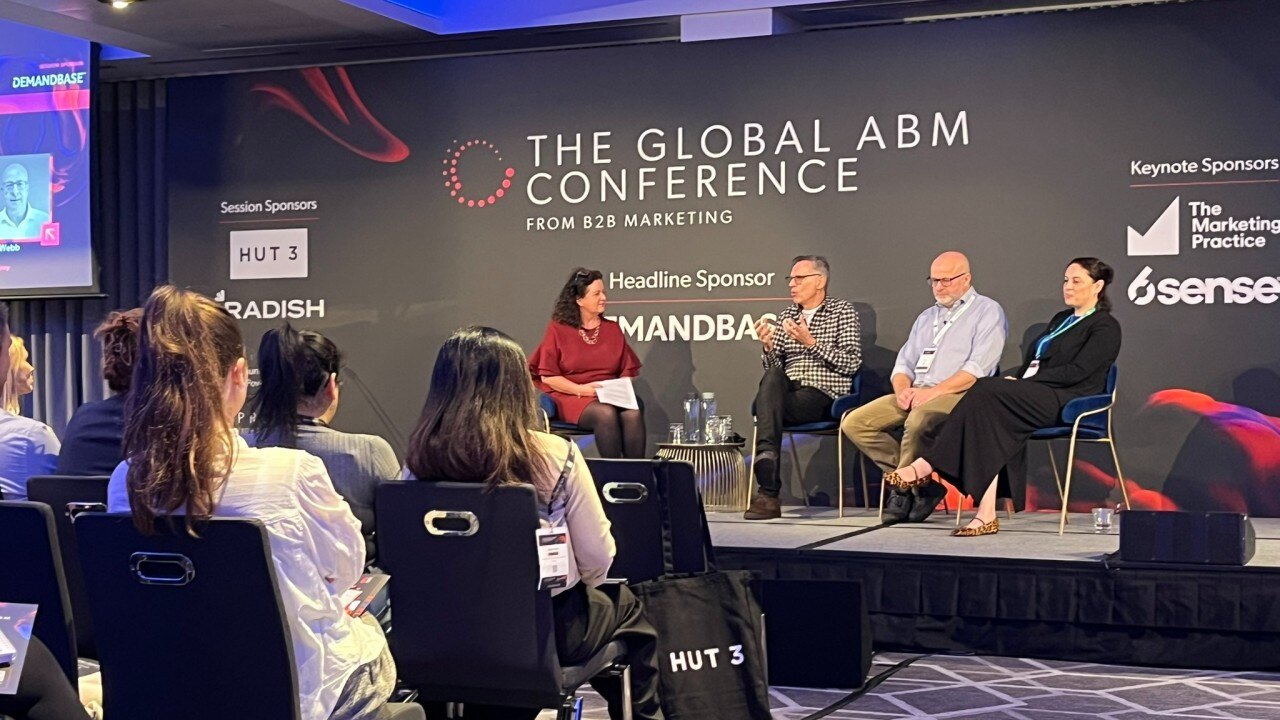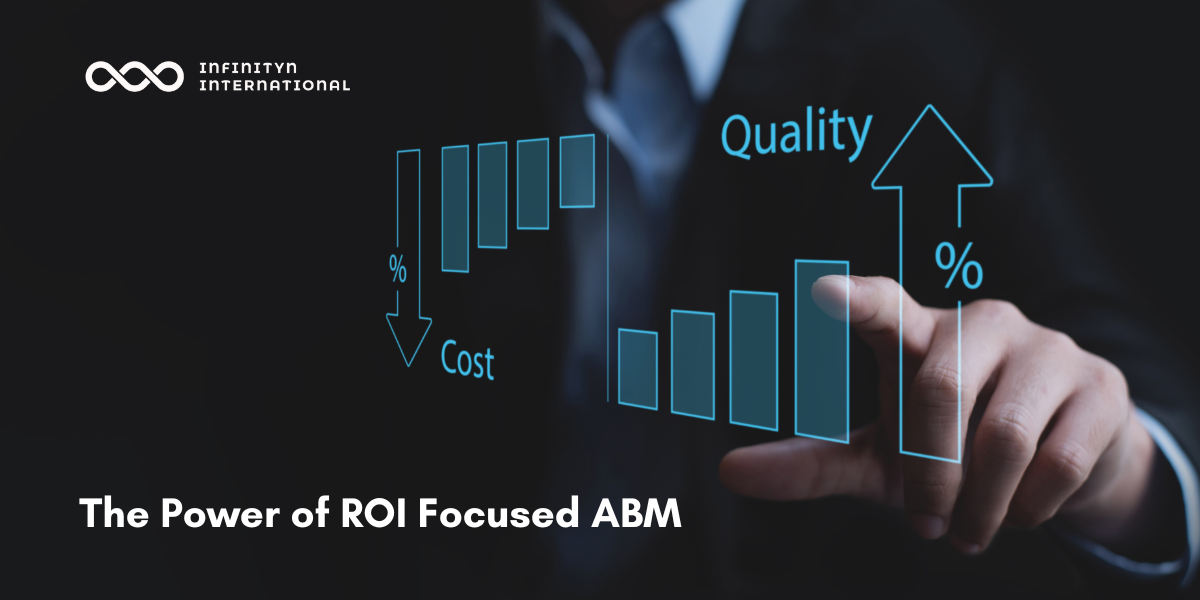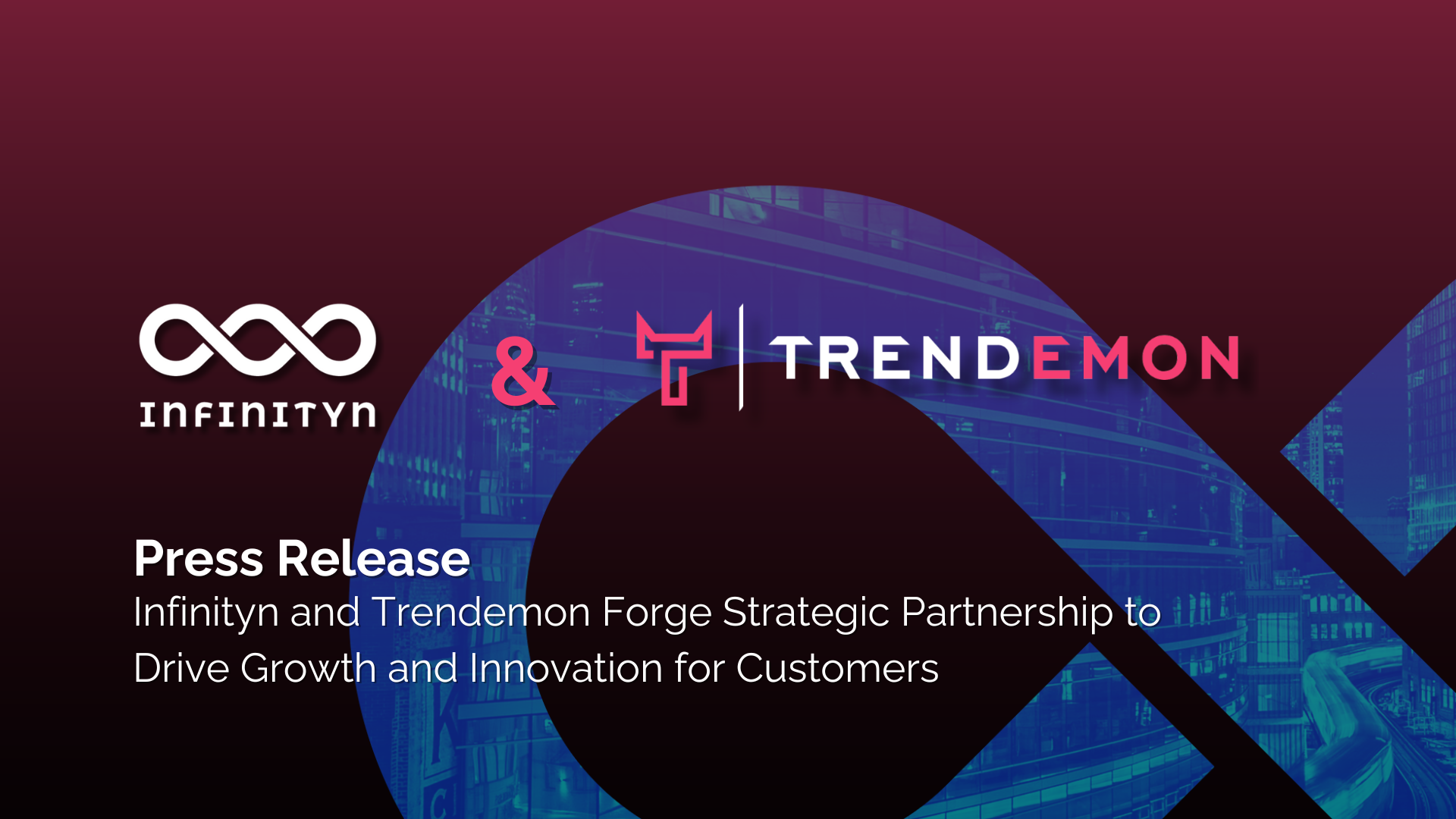Infinityn around the World – Events & Conferences
We are proud to announce that Infinityn’s professionals are set to attend three conferences the coming months. These events offer great opportunities...
4 min read
Robert Bukits
:
Nov 14, 2024 4:36:44 AM

Attending The Global ABM Conference in London last week sparked a thought-provoking question: could this event evolve into a broader forum, something like a Global Account-Based GTM Conference? This event brought together over 600 experts from around the world to discuss Account-Based Marketing (ABM) at a time when business goals are shifting, budgets are tightening, and integrated go-to-market (GTM) approaches are increasingly taking center stage. The discussions reflected ABM’s adaptability while hinting that future gatherings may benefit from a more holistic GTM perspective.
Before I go into the details, I would like to congratulate the B2B Marketing Team and extend my appreciation to all the presenters, and panellists who shared their insights and experiences on their ABM journey!
Here’s a look at my key takeaways from the conference and why the next logical evolution might indeed be a GTM-focused conference that goes beyond ABM.
Note: With concurrent sessions, I could only attend some sessions based on my interests, so these insights reflect one perspective among many.
1. The lasting relevance of ABM in 2024
The opening keynote, delivered by ABM strategy expert, Robert Norum and Joel Harrison, Editor-in-Chief of B2B Marketing, highlighted why ABM remains a top priority for companies in today’s challenging economic climate. The speakers emphasized that ABM’s precise focus is ideal for maximizing ROI when budgets are under scrutiny. By zeroing in on high-value accounts, ABM enables businesses to invest deeply in relationships that deliver meaningful returns, especially when compared to broader, less-targeted campaigns. As they noted, ABM’s ability to prioritize quality over quantity is exactly what makes it an essential strategy for businesses navigating uncertainty.
2. Henkel’s transformation: a journey from ABM pilot to scalable program
One of the conference’s most impactful sessions featured Henkel’s journey in adopting and expanding ABM. Ryan Almond, Henkel’s Global ABX Director recounted how the company grew from tentative early steps to a full-scale ABM program. Starting with a small pilot, Henkel’s team prioritized measurable results to demonstrate ABM’s value, which in turn secured broader buy-in across the organization. They call their team Account-Based Experience (ABX), emphasizing their commitment to customer centricity and cross-divisional collaboration. As they scaled, Henkel faced the challenge of evolving their pilot’s metrics and processes, which were no longer sufficient for the enterprise-wide implementation they desired.
To address this, Henkel embraced a data-driven, relationship-focused approach. By shifting from traditional lead metrics, such as Marketing Qualified Leads (MQLs), to metrics that tracked deeper engagement across buying committees, Henkel created a collaborative culture where sales, marketing, and executive teams worked in alignment. Their experience underscores that scaling ABX is as much about fostering a collaborative culture as it is about metrics and processes. Henkel’s journey is an inspiring example of how ABX can grow within a company when driven by shared goals and strategic alignment toward an enterprise-wide account-based transformation.
3. The strategic role of C-suite champions in ABM success
Another notable panel focused on the need for C-suite support to drive ABM success. As ABM gains traction as a transformative strategy, executive champions who understand and advocate for its goals are critical. Panellists David Keene, Chief Marketing Officer, Europe at Wipro; Nick Webb, Chief Marketing Officer at CloudPay; and Leanne Chescoe, Marketing Director EMEA at Demandbase , discussed how presenting ABM’s ROI in terms that resonate with executives, such as pipeline impact, customer lifetime value, and high-quality lead generation, helps elevate ABM from a marketing initiative to a core business strategy. When C-suite leaders recognize ABM’s potential for long-term growth, it opens doors to greater resources, stronger cross-functional collaboration, and the potential for more meaningful organizational change.
4. AI-enhanced ABM: moving from ‘Wow’ to practical applications
A major theme of the conference was AI’s growing role in enhancing ABM efficiency and effectiveness. Several sessions explored how AI can support account-based strategies by accelerating research, developing nuanced personas, and enabling real-time communication adjustments. For instance, tools like ChatGPT are now being used to streamline account research, simulate stakeholder personas, and test targeted messaging before campaigns are deployed. By incorporating AI, companies can personalize their outreach at scale—a challenging aspect of traditional ABM. The speakers emphasized that AI is transitioning from theory to practical applications, allowing marketers to focus on high-level strategy and relationship-building rather than repetitive tasks.
5. Splunk’s ‘In-Account Services’ model: a blueprint for cross-functional integration
Annelie Kniep, Senior Marketing Manager at Splunk and Scarlet Sanigar, VP of Customer Services at The Marketing Practice introduced an innovative model called “In-Account Services”, a holistic approach that unites marketing with other functions to serve high-value accounts. This model combines ABM with immersive C-suite experiences and promotes collaboration across departments, including sales, product, and customer support. By implementing personalized in-account services, Splunk has created a flexible program that deepens relationships within target accounts while utilizing existing resources across the organization.
The model emphasizes fluidity, allowing different teams to contribute unique perspectives and insights to the account experience and eliminating the silos that often separate them. For Splunk, the in-account services approach acts as a “hub” where all teams can collaborate, share insights, and deliver focused support for key accounts. This approach offers a valuable blueprint for companies seeking to integrate ABM with other GTM functions, supporting the idea that ABM can thrive as part of a broader GTM framework.
Looking ahead: could we see a Global Account-Based GTM Conference?
The conference’s insights suggested that while ABM remains essential, the evolution of go-to-market strategies calls for a broader forum. A Global Account-Based GTM Conference could unite leaders from sales, marketing, customer success, revenue operations and product teams to foster alignment. This expanded conference would provide space to discuss unified strategies that bridge ABM and GTM, leveraging ABM’s focused approach alongside cross-functional insights to optimize engagement across the customer lifecycle.
Such an event could explore innovations in ABM technology, cross-functional collaboration, and emerging AI applications, all with the goal of creating a cohesive GTM ecosystem. A standout example of this vision was Salesforce’s session, where Joanna Moss, Jack Farrell, and Andrew McIlwraith showcased a collaborative, account-based journey led by Marketing, Sales, and Customer Success. This multi-perspective session underscored how joint efforts can drive significant results and serve as an inspiring model for a future where cross-functional GTM strategies take center stage.
Key takeaways for future ABM and GTM practitioners
1. Engage the C-Suite: C-suite involvement transforms ABM from a marketing effort to a strategic initiative, aligning it with broader business objectives.
2. Align metrics with sales: Moving beyond traditional lead metrics to sales-ready pipeline metrics fosters alignment with sales goals and enhances engagement.
3. Leverage AI to scale personalization: AI empowers ABM by automating research and personalization, enabling companies to reach more accounts without sacrificing quality.
4. Embrace cross-functional models: Integrated approaches, like Splunk’s in-account services model, highlight how ABM can create value when linked with other GTM functions.
Concluding thoughts
The 2024 Global ABM Conference highlighted ABM’s continued evolution and hinted at a promising future where ABM could become part of a larger GTM strategy. A potential Global Account-Based GTM Conference offers an exciting vision of a collaborative future, one where account-based marketing and integrated GTM strategies work in harmony, enhancing customer engagement and organizational alignment alike.
Should the focus be on ABM professionals and leaders in this conference, or would it be more beneficial to include broader participation from sales, customer success, product, and revenue operations teams?
Alternatively, should there be an even larger event that combines all these functions under one account-based GTM umbrella?
What’s your view on the future direction of account-based GTM?
I’m curious about your thoughts!

We are proud to announce that Infinityn’s professionals are set to attend three conferences the coming months. These events offer great opportunities...

In the dynamic and competitive business environment of today, the adoption of Account-Based Marketing (ABM) represents a strategic shift towards...

In the ever-evolving marketing strategies, Account-Based Marketing (ABM) has emerged as a powerful approach that focuses on targeting specific...

In the wake of unprecedented global challenges, the landscape of business has undergone a profound transformation. The era of uncertainty and chaos,...

Strategic Investment in Technology In the ever-evolving landscape of business, the journey from product ideation to market success is riddled with...

In the dynamic world of B2B marketing, Account-Based Marketing (ABM) has surfaced as a game-changing strategy, yielding significant returns on...

In the dynamic realm of B2B marketing, collaboration often breeds innovation and success. This finds vivid expression in the strategic partnership...

Amidst the constantly shifting terrain of contemporary marketing, the concept of Account-Based Marketing (ABM) has emerged as a game-changer for...

Infinityn and Trendemon Forge Strategic Partnership to Drive Growth and Innovation for Customers

Marketing goes beyond promotion. Marketing is creativity, profound planning, understanding of your audience, analysing data – especially nowadays,...

In the bustling landscape of modern business, data reigns supreme as the cornerstone of strategic decision-making. Yet, amidst the deluge of...

TOPO’s “2019 ACCOUNT BASED BENCHMARK REPORT” – which included 150 account-based organizations - showed that every participant reached or exceeded a...